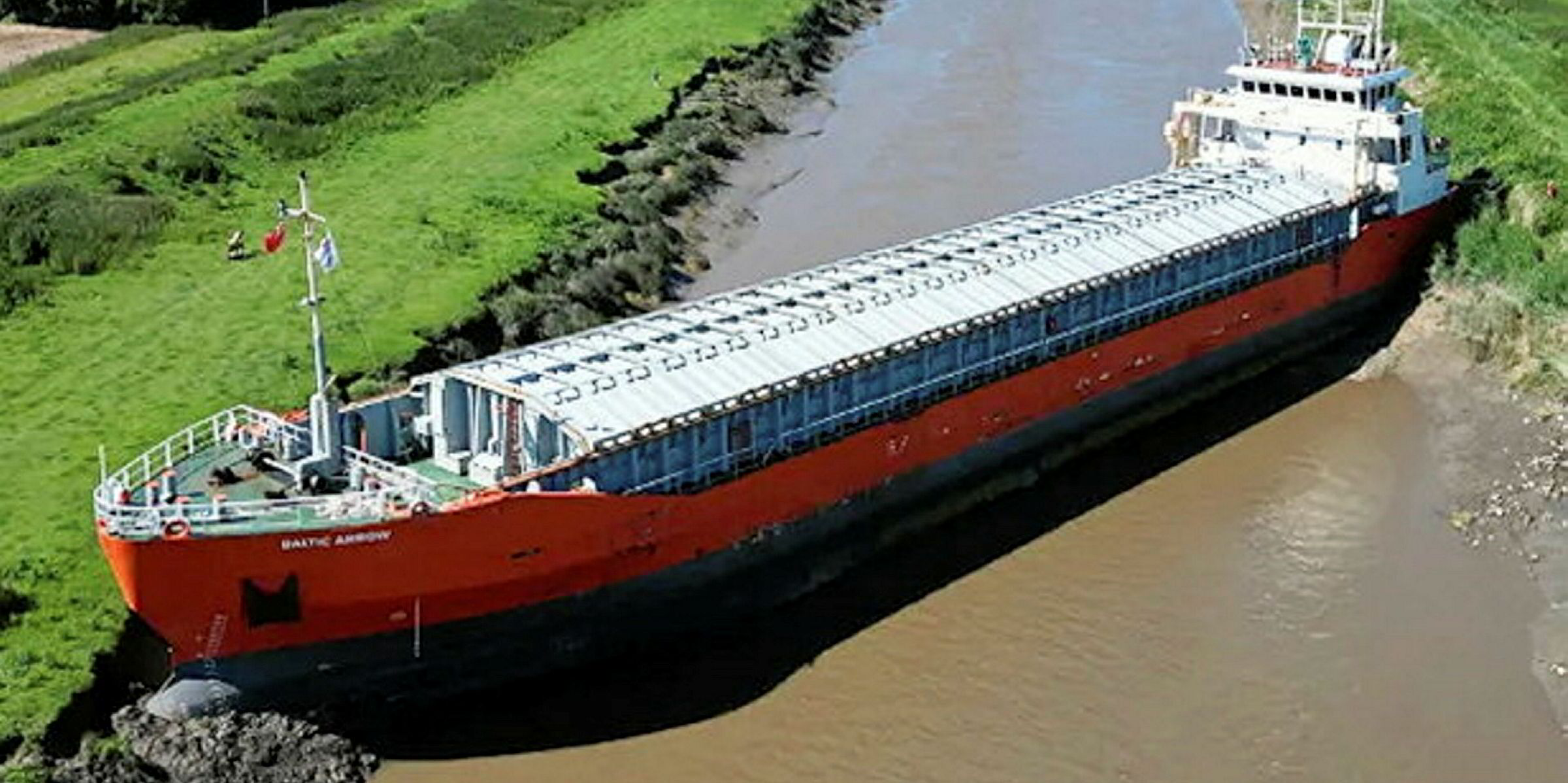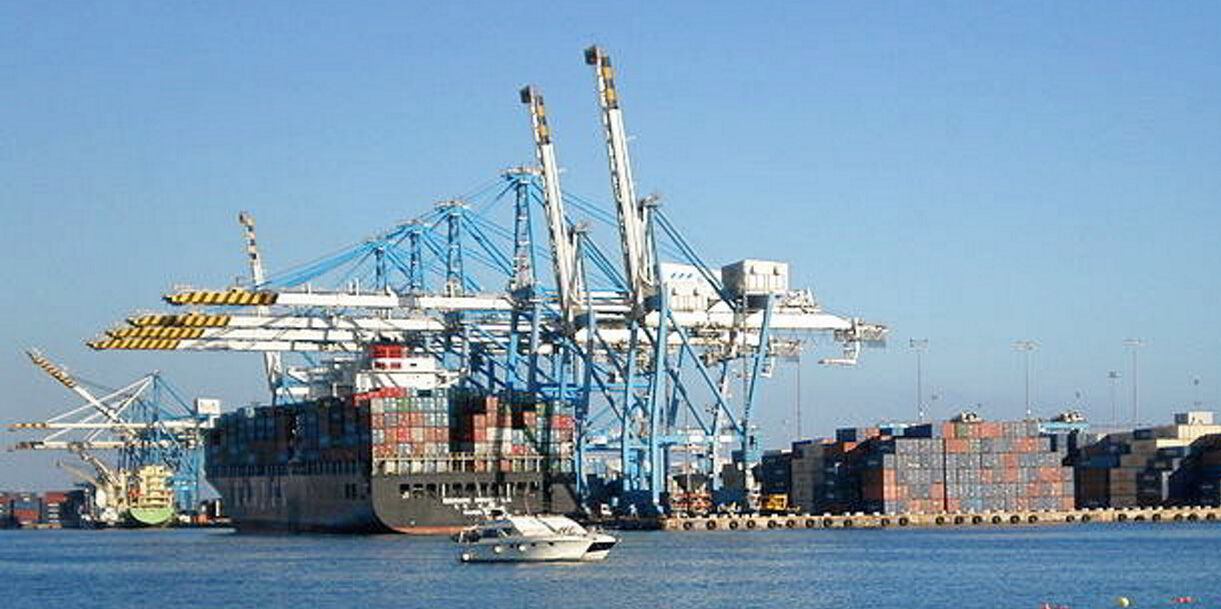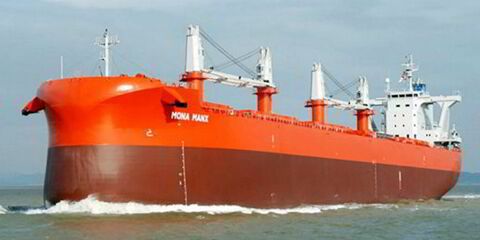A lack of communication and concentration likely caused a cargo ship to get stuck in the River Nene in England over the summer.
That is the conclusion of a preliminary assessment by the UK Marine Accident Investigation Branch (MAIB).
The St Kitts and Nevis-flagged 3,000-dwt general cargo vessel Baltic Arrow (built 2002) became wedged across the channel while en route to Wisbech, England, from Latvia, with a timber cargo on 25 June.
There was no damage or pollution and no one was injured.
Two pilots were on board, MAIB said.
The master and the pilots completed a brief exchange before pilot A, who was under assessment by the senior pilot B, took the helm.
The master and pilot B remained on the bridge but, aside from monitoring the passage, did not have specific roles within the bridge team, the report found.
The younger pilot reduced the vessel’s speed in preparation for a berthing manoeuvre and noticed the ship was slightly to port of the planned track.
Pilot A applied 30 degree starboard helm and “kicked” the main engine ahead to correct the vessel’s position in the narrow channel, MAIB said.
The Baltic Arrow’s bow quickly swung to starboard and before the bridge team could take effective avoiding action, its bow grounded on the western bank of the river at a speed of 6 knots.
Refloated by tugs
The stern was then pushed onto the eastern bank by the flood tide, wedging the vessel across the river.
Initial attempts to free the vessel were unsuccessful, and the Baltic Arrow was eventually refloated with tug assistance on the evening flood tide.
The MAIB’s preliminary assessment identified that the cargo ship probably experienced some bank effect, which pilot A attempted to counter with the starboard helm and kick ahead on the main engine.
“Pilot A did not realise that they had over-corrected the vessel’s heading until it was too late to avoid the grounding,” MAIB found.
The pilot had been helming the vessel for nearly two hours at the time of the accident.
“It is therefore possible that the requirement to sustain a high level of attention to complete the pilotage safely within the confined channel resulted in a lapse of concentration,” the report said.
“The bridge team were communicating ineffectively, and lacked a shared mental model of the task being undertaken. This meant that no one recognised the developing situation in sufficient time to prevent the grounding,” it added.
MAIB also noted insufficient action had been taken to prevent the reoccurrence of an incident on the River Nene following the February 2023 grounding of Baltic Arrow’s sister vessel, the 3,000-dwt Baltic Express (built 2001).
Wisbech Harbour Authority has since commissioned and received an independent report into the grounding and introduced simulator training for its pilots.
Shipowner Galleywood Shipping has considered the introduction of an additional bridge watchkeeper and reviewed the Baltic Arrow’s rudder capabilities, MAIB said.





